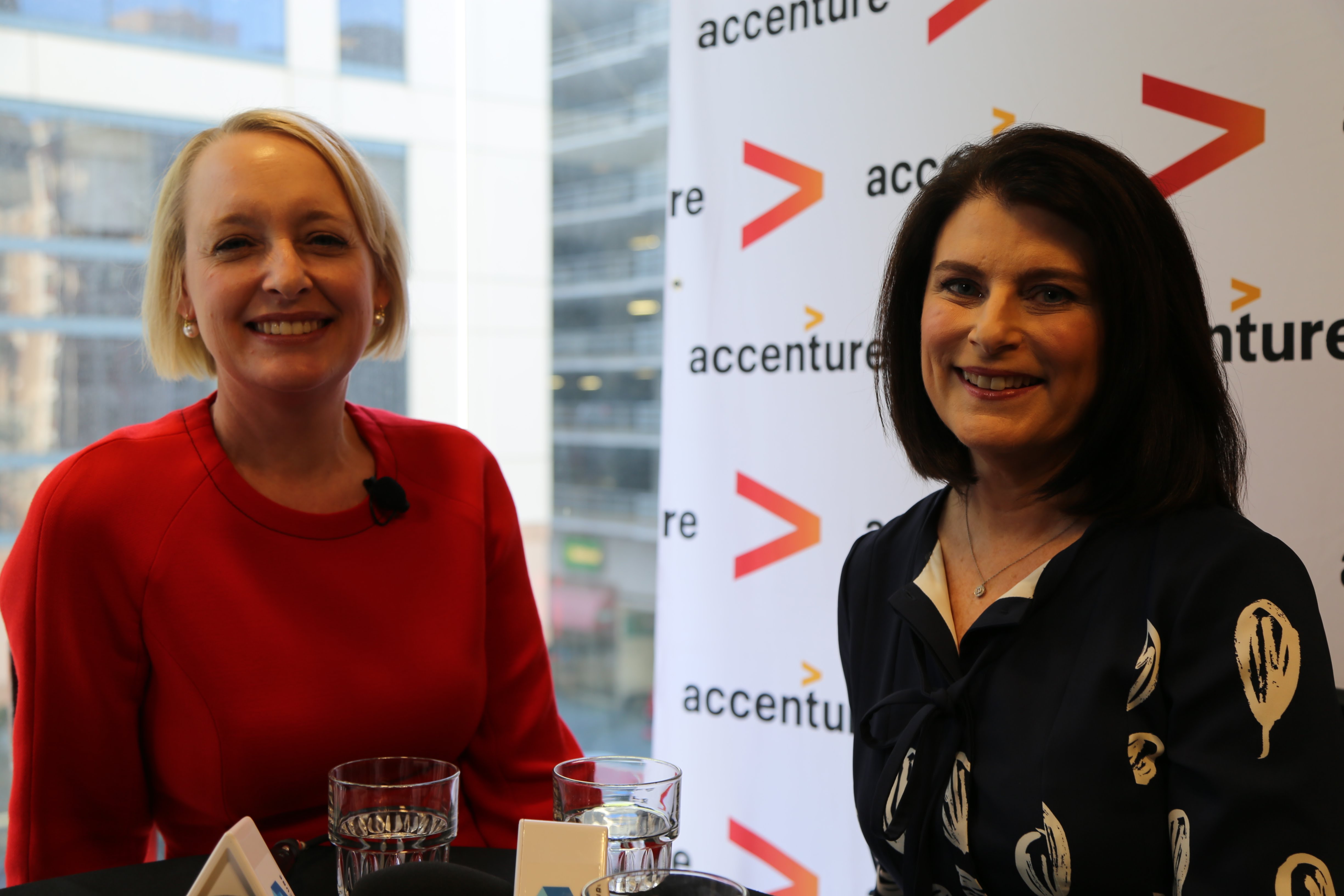 WOMEN IN TECH
WOMEN IN TECH
 WOMEN IN TECH
WOMEN IN TECH
 WOMEN IN TECH
WOMEN IN TECH
Americans believe 18 percent of chief executive officers in the largest companies around the world are women, according to Ipsos SA. In reality, only 3 percent of CEO roles at these companies are held by women worldwide.
Though gender inequalities have recently gained prominence in the national conversation, many Americans still drastically overestimate diversity in the workforce. To help improve accountability and work toward inclusivity internationally, management consulting and professional services company Accenture conducted a study entitled “When She Rises, We All Rise — Getting to Equal 2018,” concerning the state of gender equality within its own employee base.
Julie Sweet (pictured, left), chief executive officer, North America, at Accenture, and Ellyn Shook (pictured, right), chief leadership and human resources officer at Accenture, spoke with Jeff Frick (@JeffFrick), host of theCUBE, SiliconANGLE Media’s mobile livestreaming studio, during the Accenture International Women’s Day — Creating a Culture of Equality event in San Francisco, California. They discussed the results of Accenture’s research and how the company is implementing its findings to improve diversity efforts internally and within the industry at large.
[Editor’s note: The following answers have been condensed for clarity.]
The Accenture “Getting to Equal” report says, “When she rises, we all rise.” Tell us about the research and its results.
Shook: Every year we publish a piece of research about gender equality, and this year we put a different lens on it to really look at equality for all. The research is groundbreaking. Never [before] have I seen a piece of research that looks at the cultural aspects of an organization and really helps to articulate very transparently the biggest accelerators in a culture for equality.
What are some of the key findings of the report?
Sweet: The first is bold leadership, companies like Accenture who set targets and have CEOs who are very clear about their priorities. The second is comprehensive action, policies and practices that are really effective. Third, which I think is often under-focused on, is an empowering environment. In companies with these factors, women were five times more likely to advance to director or senior manager, and men were two times more likely.
Shook: I think what the research showed very strongly is that companies need to look at programs, policies, practices and an environment that levels the playing field rather than isolating any particular gender or other form of diversity.
Were there any surprises that came out of the research?
Sweet: [In] companies that implemented maternity leave only, it actually had a negative effect on women’s advancement. But where companies implemented parental leave for men and women, it eliminated that negative bias. These policies and actions need to be about women and men. It’s not about one action. The way that companies really create a culture of equality is [through] a combination of these factors.
Why do you think things are changing now? Is it the tipping point that it feels like?
Shook: We’re living in a digital age all about innovation. You cannot innovate without diversity. It’s a source of competitive advantages for organizations in this age. But also what’s happening in culture the “Me Too” movement, as well as other things that are occurring for women around the world — it’s a moment in time where a movement can really start to happen. Companies who look at culture as an accelerator of change are going to be the winners.
How do you see cultures changing, and how are they executing that change?
Sweet: It’s really about leadership, who is the CEO and what kind of a board we have. You [don’t] have to be born digital to be have a great culture. One of the key things we saw in the study was around transparency of goals. We talk a lot at Accenture about how transparency creates trust. The trust of your employees and the trust of the people you want to attract. When we put out our statistics in the U.S., it wasn’t that we had phenomenal statistics, but the fact that we were willing to put them out created trust that we were trying to change. It helped people want to be a part of that change.
Watch the complete video interview below, and be sure to check out more of SiliconANGLE’s and theCUBE’s coverage of the Accenture International Women’s Day — Creating a Culture of Equality event.
Support our mission to keep content open and free by engaging with theCUBE community. Join theCUBE’s Alumni Trust Network, where technology leaders connect, share intelligence and create opportunities.
Founded by tech visionaries John Furrier and Dave Vellante, SiliconANGLE Media has built a dynamic ecosystem of industry-leading digital media brands that reach 15+ million elite tech professionals. Our new proprietary theCUBE AI Video Cloud is breaking ground in audience interaction, leveraging theCUBEai.com neural network to help technology companies make data-driven decisions and stay at the forefront of industry conversations.